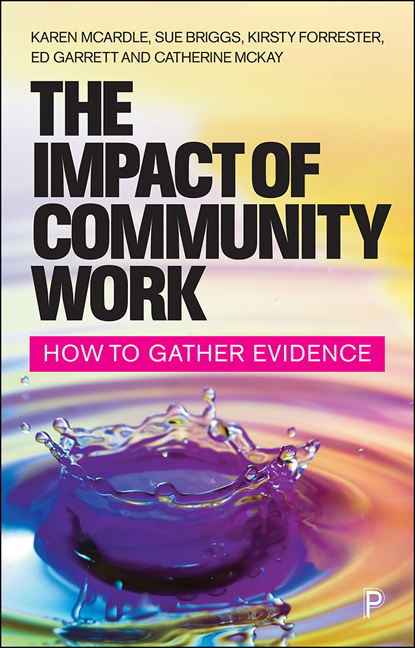13 - What Everyone Needs to Know: Management Information Systems
Published online by Cambridge University Press: 10 March 2021
Summary
Introduction
A female community worker, Marion, is interested in who participates in her town's community centres. She consults the organisation's management information system (MIS) and discovers that her perceptions and suspicions of gender bias are accurate. The participants are 78% female and over the age of 65. She decides to run some dads’ groups that target younger men with school-age children.
In this example, a community worker has used an MIS for needs analysis to confirm what was originally just suspicion. An MIS may be characterised as a repository for key information that helps an organisation keep itself on track. It is a secure and safe way used by organisations to record the personal information of clients, participants or service users. The word management is often considered to be a noun in the MIS phrase; it implies that the system is for a particular group of people – managers. We suggest it should be a verb and is a system about the process of management for all people in an organisation.
The information a system retains is most often quantitative and most often electronic, though not necessarily so. Paper systems do exist and often MISs act as a repository for some qualitative information, such as qualitative evaluation findings or records of progress/achievement. It is referred to as a system because it implies a wide coverage of information and a comprehensive approach to gathering information. In short, it does not work if there are holes in it, a topic we return to later in this chapter. MISs do not need to be large and complex. Many people have paper systems or use Excel or other forms of spreadsheet. The advantage of having an electronic system is that it can be accessed by other people. If you have a paper system in a filing cabinet and go off sick, nobody can access the information if the cabinet is kept locked, as it should be if it contains people's data. Moreover, paper systems are usually only easily accessible to the people who have devised them.
Many local authorities collect huge amounts of administrative data that you can use for evidence, even if this does not constitute an MIS. Such secondary data are discussed in more detail in Chapter 14.
- Type
- Chapter
- Information
- The Impact of Community WorkHow to Gather Evidence, pp. 209 - 224Publisher: Bristol University PressPrint publication year: 2020



